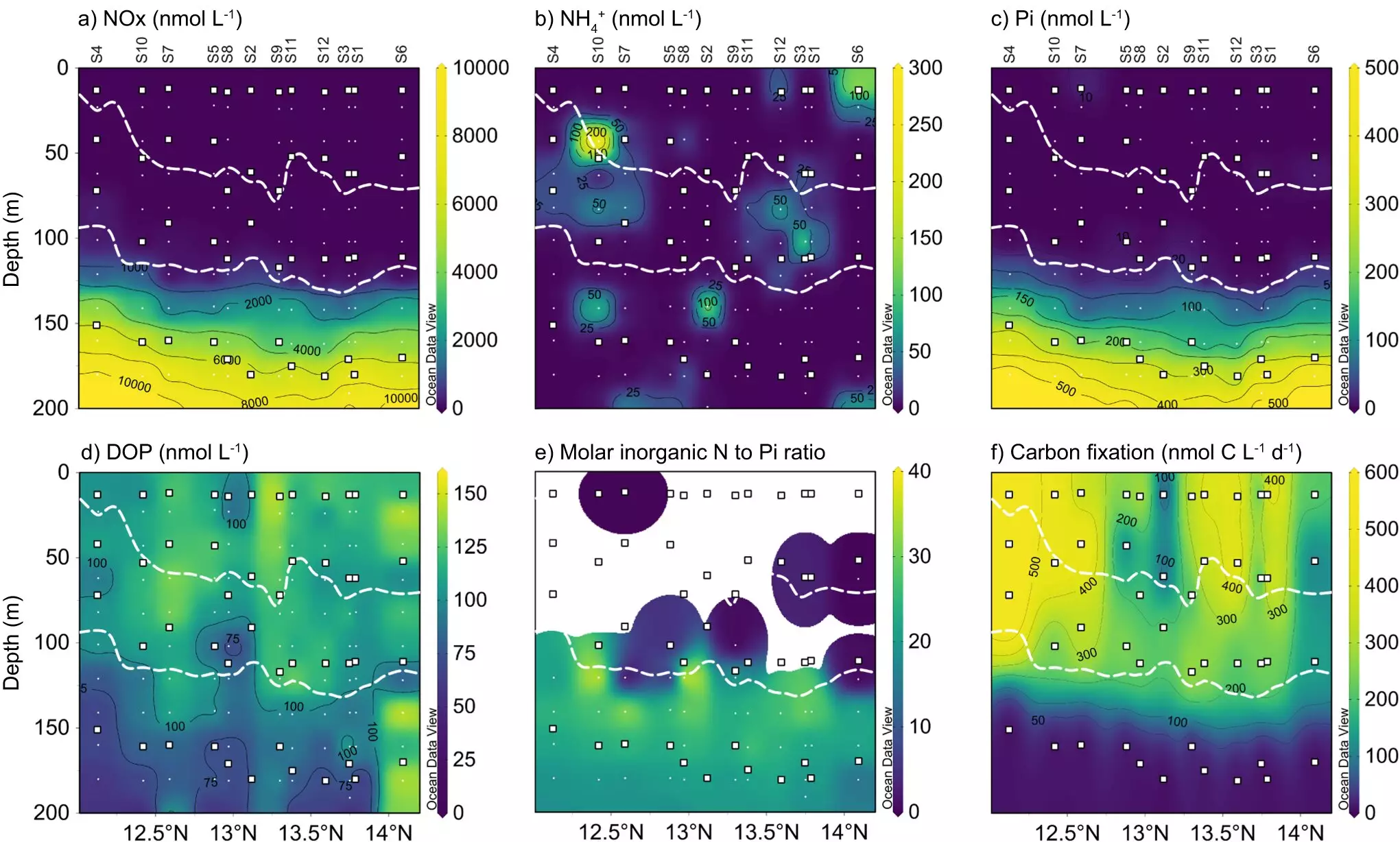The release of methane, a potent greenhouse gas, into the atmosphere contributes significantly to global warming. Traditionally, methane production has been attributed to microorganisms in oxygen-deprived environments. However, recent research has demonstrated that bacteria are capable of aerobic methane production. These bacteria release methane as a byproduct during the acquisition of phosphorus, a nutrient crucial for their survival. The release of methane by bacteria has significant implications for atmospheric greenhouse gases. A team of researchers from the Max Planck Institute for Marine Microbiology in Bremen has recently conducted a study to investigate bacterial methane production in the surface water off the Caribbean island of Barbados. The findings of this study shed light on the distribution and significance of these bacteria and their abilities, challenging our current understanding of methane production in the ocean.
The researchers discovered that methane production is highest near the water surface. Surprisingly, they also detected methane at depths of up to 200 meters, where ample phosphate is available, and bacteria would not need to use methylphosphonate to acquire phosphorus. The types of bacteria responsible for methane production also varied with depth. While the cyanobacterium Trichodesmium dominated methane production at the surface, Alphaproteobacteria were predominant at greater depths. By utilizing methylphosphonate as a phosphorus source, bacteria are able to fix more carbon in the surface water than if they relied solely on phosphate. This finding highlights the ecological importance of phosphonates in the carbon cycle of nutrient-poor ocean regions. Despite their ability to capture carbon dioxide, these microorganisms also release methane into the environment.
The researchers’ study challenges a long-held belief that methane production in oxygen-saturated environments is impossible. The presence of bacteria capable of producing methane even in the presence of oxygen raises concerns about methane emissions from the sea. Additionally, since these bacteria can be found in all the world’s oceans, the methane produced from methylphosphonate likely contributes significantly to greenhouse gas emissions, particularly in phosphate-poor environments. The exact amount of methane released into the environment is influenced by the balance between its production and oxidation. However, our current understanding of the sources and sinks of methane in the ocean remains limited. Furthermore, the impact of ongoing climate change on these methane sources and sinks is not fully understood.
The researchers suspect that aerobic methane production will increase in the future as the ocean warms and stratification of the water column becomes stronger, making phosphate even scarcer. This is concerning because the process takes place in surface waters, allowing the methane produced to escape immediately into the atmosphere. In order to predict and mitigate the negative effects of increased methane emissions, further research is necessary to understand the underlying processes and determining factors. By gaining a deep understanding of how this process works, scientists can develop effective strategies for reducing methane emissions and their impact on global warming.
The investigation conducted by the researchers from the Max Planck Institute for Marine Microbiology in Bremen has provided valuable insights into bacterial methane production and its repercussions on greenhouse gas emissions. The presence of bacteria capable of producing methane in oxygen-saturated environments challenges our previous understanding of methane dynamics in the ocean. The study also highlights the importance of phosphonates in the carbon cycle of nutrient-poor ocean regions. The findings emphasize the need for further research to better comprehend the sources and sinks of methane in the ocean and their response to climate change. By deepening our understanding of these processes, we can take steps to mitigate the negative impacts of methane emissions on global warming.


Leave a Reply